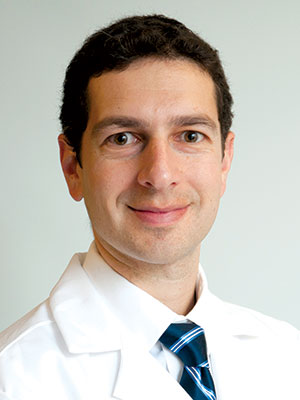
This year’s Annual Meeting program features three separate Maintenance of Certification (MOC) sessions designed to help attendees brush up on diagnosis and management of prevalent conditions. Each of the three sessions will employ a similar format in which faculty will present carefully developed cases and questions and guide participants through clinical situations that will reinforce key principles in the evaluation and treatment of rheumatic disease. All Annual Meeting scientific attendees will have complimentary access to corresponding online activity that offers CME credits and MOC points.
The first session, 2019 CARE: MOC Sessions 1 of 3: Scleroderma, will be held on Sunday, from 12:30 – 2:00 pm, in the Thomas Murphy Ballroom 3 & 4, Building B of the Georgia World Congress Center. Eli Miloslavsky, MD, Assistant Professor of Medicine and Co-Director of the Vasculitis Center at Massachusetts General Hospital, will serve as moderator for the session.
“The last several years have seen considerable advances in the treatment of scleroderma, an often-devastating disease that affects multiple organ systems. Early recognition, treatment, and avoidance of exacerbating factors are critical aspects of patient management,” Dr. Miloslavsky said.
During the session, speaker Maureen D. Mayes, MD, MPH, will describe factors for scleroderma renal crisis, identify appropriate candidates for immunoablation by chemotherapy followed by stem cell rescue in systemic sclerosis treatment, review the different methods for ANA testing and their implications, and discuss the distinction between pulmonary hypertension (PH) and pulmonary arterial hypertension (PAH) in this population. Dr. Mayes is Director of the Scleroderma Clinical and Translational Research Program at the University of Texas McGovern Medical School in Houston.
“At the end of the session, attendees will leave with a better understanding of ANA testing in scleroderma, deeper familiarity with two of the more morbid complications of scleroderma — scleroderma renal crisis and pulmonary hypertension — as well as recognition of stem cell transplantation as an emerging treatment modality for selected patients,” Dr. Miloslavsky said.
The second of this year’s MOC sessions, 2019 CARE: MOC Sessions 2 of 3: Spondyloarthropathies, will be held on Monday, from 12:30 – 2:00 pm, in the Thomas Murphy Ballroom 3 & 4. During this session, moderator Luc Nguyen, MD, of the University of Texas Health Sciences Center at San Antonio, and speaker Alexis Ogdie, MD MSCE, of the University of Pennsylvania, will guide the audience through clinical situations that will reinforce key principles of diagnosis and management of spondyloarthropathies (SpA).
Cases and questions presented during this session will cover common disease associations in spondyloarthropathies, the importance of physical activity and physical therapy as treatment modalities in SpA, the classifications of axial spondyloarthritis (AxSpA), including radiographic and non-radiographic AxSpA, and strategies to implement a treatment plan for psoriatic arthritis (PsA) and AxSpA.
The final MOC session, 2019 CARE: MOC Sessions 3 of 3: Sarcoidosis and Interstitial Lung Disease, will be held on Tuesday, from 12:30 – 2:00 pm, in the Thomas Murphy Ballroom 3 & 4. In this session, moderator Amy Cannella, MD, of the University of Nebraska Medical Center will be joined by speakers Huzaefah Syed, MD, MPH, of Virginia Commonwealth University Medical Center, and Bryant England, MD, of the University of Nebraska Medical Center.
Dr. Syed will review the different clinical presentations and imaging modalities of sarcoidosis and discuss the need for different therapeutic options in sarcoidosis and how to implement them in clinical practice. Dr. England will describe the patterns of interstitial lung disease (ILD) and the complex intersection of ILD and the systemic autoimmune rheumatic diseases, review the appropriate evaluation of idiopathic interstitial pneumonia and of ILD in patients with pre-existing systemic autoimmune rheumatic diseases, and discuss approaches to management of autoimmune forms of ILD.
